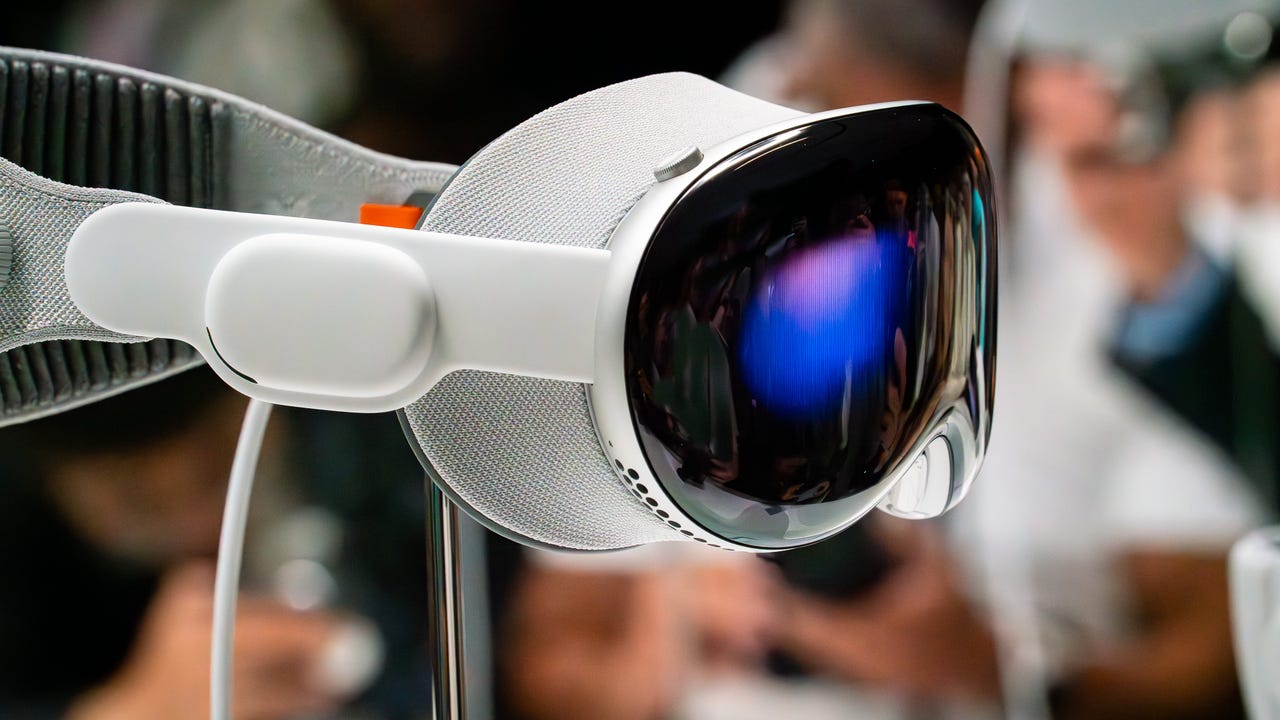
To call Apple’s news strategy for its $3,500 Vision Pro headset “controlled” would be an understatement. From the isolated photo op at WWDC 2023 to the timed, battery-tucked hands-on sessions leading up to pre-order week this January, missing was a clear understanding of how the headset performed in real-world environments, what its best use cases were, and how much potential this upcoming era of spatial computing truly had.
Also: I’ve tried Vision Pro and other top XR headsets and here’s the one most people should buy
Some of these questions will be answered today, as reviewers and industry experts can now share their experiences of testing the Vision Pro on their own over the past week. ZDNET will be putting Apple’s next big thing through the wringer, too, so stay tuned for our thoughts and buying advice. Until then, here’s a summary of the first reviews of the Apple Vision Pro.
CNET‘s Scott Stein says “living in the Vision Pro for the past week has been one of the most complex experiences of all. It’s one of the hardest products I’ve ever had to evaluate. Parts of it are stunning. Others don’t feel entirely finished.” One aspect that impressed Stein was the Vision Pro’s depth mapping and spatial awareness; particularly, how the headset did not need to map out guardian boundaries to process the objects surrounding him.
Stein also used the Vision Pro as his “everywhere computer,” connecting the headset with a Mac via Mac Virtual Display. While the Vision Pro limits users to just one monitor view (but with floating Vision OS/iOS apps on the side), the projection appears in crisp 4K. “There are glitches, and sometimes the controls feel too floaty, but in its first form, I’m shocked at how good it already is,” remarked Stein.
Also: 10 reasons the Apple Vision Pro is secretly brilliant
One area of improvement, however, was the haptics. “Being able to feel feedback like on a phone or watch or with game controllers. I want more precise controls in 3D space, something fully multifunctional. I’m not sure hand-tracking and eye-tracking alone can do all of that.”
Based on unboxing videos, the Solo Knit Band comes preinstalled on the Vision Pro. Jason Hiner/ZDNET
Wall Street Journal‘s Joanna Stern also took the Vision Pro for a spin — skiing with it, even, to test Spatial Video recording. Based on the video output, which is formatted in 2200 x 2200 resolution, 30fps, and 1:1 aspect ratio, the quality looked decent but not much better than what a pair of Meta Ray-Ban glasses could capture for thousands of dollars less.
What was it like wearing the headset for 24 hours straight? “Painful, but insightful,” Stern said. “The Vision Pro has every characteristic of a first-generation product. It’s heavy, its battery life sucks, there aren’t that many great apps yet, and sometimes, it’s buggy.” The best use cases, Stern found, were using the Vision Pro as a work computer and watching movies.
Also: What apps will be on Apple Vision Pro? Not these two major ones
The Verge‘s Nilay Patel expanded on his experience using Vision Pro’s EyeSight feature, an aspect that was hidden in earlier demo sessions. “In reality, (EyeSight) might as well not be there. It’s a low-res OLED with a lenticular panel in front of it to provide a mild 3D effect, and it’s so dim and the cover glass is so reflective, it’s actually hard to see in most normal to bright lighting,” Patel noted.
Fortunately, the inner display is much more capable, as reported by CNBC‘s Todd Haselton. “The displays help remove the “screendoor” effect that’s common in lower-cost headsets like the Meta Quest 3. That’s where you can see the pixels as you look through a headset. You can easily read text on a website or a book on the Vision Pro. And I was able to watch movies, including in 3D, on screens bigger and nicer than any TV in my house.”
Final thoughts
Many reviewers agree that the Vision Pro is the biggest technological leap in VR ever, with an audio/visual quality that reimagines what can be done in the digital world. Being a first-generation product, and a first within the product category for Apple, also means that the Vision Pro is not without its flaws. There are many, including the lack of haptics, occasional glitches and bugs, limited app availability, and hand-eye tracking that can be better calibrated.
The price of entry is another barrier for most people. But the cold hard fact, as ZDNET’s Jason Hiner points out, is that the Vision Pro is an incredible, expensive developer kit that most people should not buy. Instead, take the headset for a spin at your local Apple Store or buy and return it before the two-week window closes. Until Apple releases a more affordable headset, which will likely come in 2-3 years, if not longer, the Meta Quest 3 is your best, safest option.

